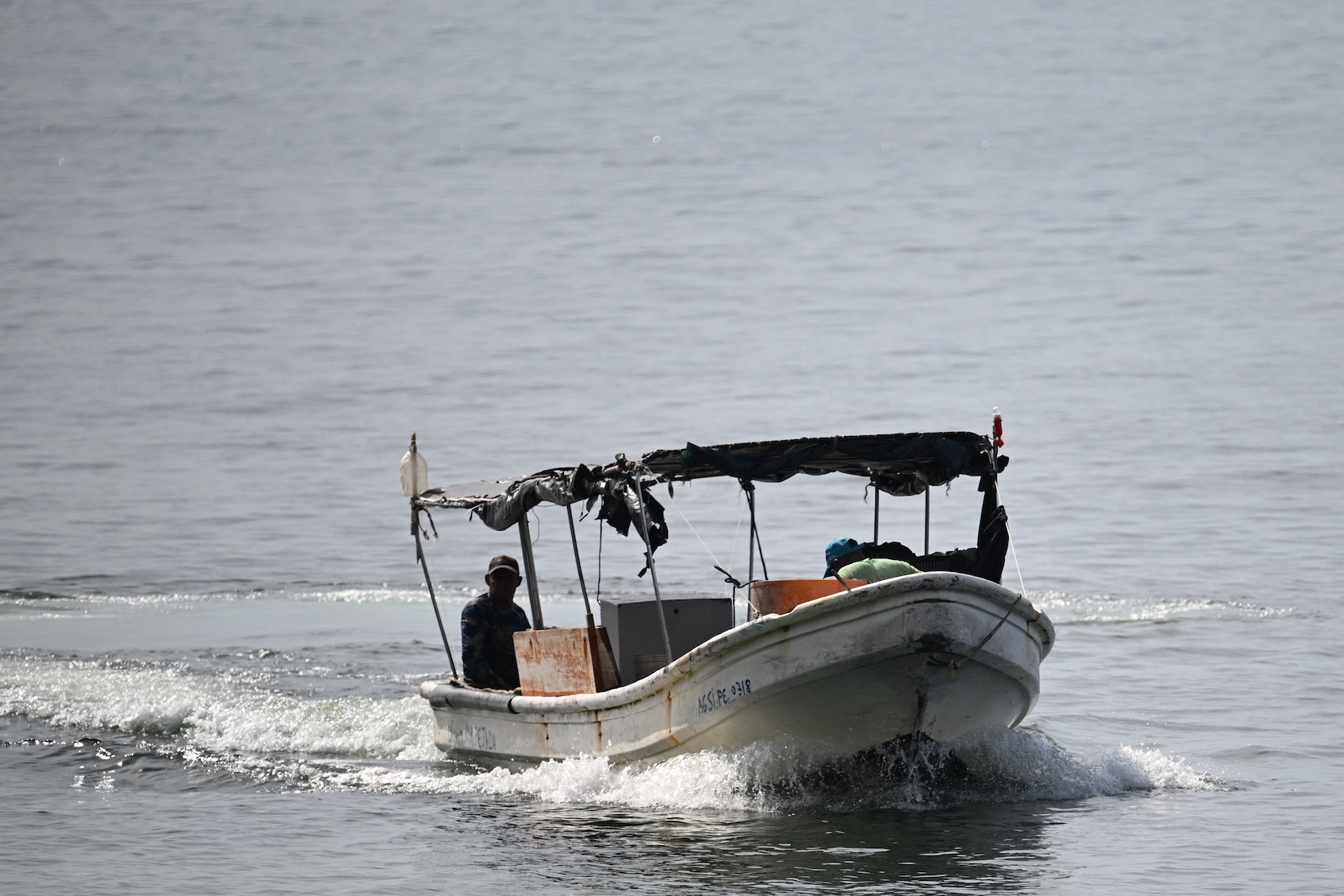World
Trump’s Expanding Military Authority Raises Concerns Over Civilian Safety

President Donald Trump has intensified military operations targeting suspected drug trafficking boats in the Caribbean and eastern Pacific Ocean, raising significant concerns about the implications of his actions on civilian safety and executive authority. Since early September, military strikes have reportedly resulted in the deaths of nearly 60 civilians, with Defense Secretary Pete Hegseth sharing videos of these operations that have drawn criticism for their brutal nature.
In a recent appearance on “60 Minutes,” Trump suggested that while a war with Venezuela is unlikely, the regime of President Nicolás Maduro is nearing its end. This statement comes amid growing unease over Trump’s unilateral approach to military action and the lack of accountability for the resulting civilian casualties. The situation exemplifies a troubling trend toward extrajudicial actions, where individuals are targeted without due process.
The Justice Department’s Office of Legal Counsel (OLC), once regarded as a bastion of constitutional guidance, is now perceived as a facilitator of unchecked executive power. Critically, the office has been accused of providing legal justifications for actions that echo past abuses of authority, raising alarms about the potential for further erosion of legal protections. The historical context is important, as previous administrations have faced similar criticisms for their expansive interpretations of executive authority.
Throughout U.S. history, various administrations have claimed the right to act as prosecutor, judge, jury, and executioner, often labeling targets as “enemy combatants” or “terrorists” to justify military actions. This practice raises fundamental questions about the principles of justice and accountability. Individuals such as whistleblowers Chelsea Manning and Edward Snowden have highlighted the ethical challenges posed by such unilateral actions.
Trump’s recent military orders have drawn parallels with previous administrations. During the George W. Bush era, the OLC produced controversial memos that justified torture, while the Barack Obama administration faced scrutiny for the drone assassination of American citizens without due process. These precedents illuminate a concerning pattern where legal justifications are crafted to support expansive military actions.
The OLC’s role has shifted dramatically; rather than serving as a check on executive overreach, it now appears to endorse actions that could have severe human costs. Legal experts have pointed out that the office has been misappropriated, leading to a lack of accountability and oversight. Bruce Fein, a former OLC attorney, emphasized that the office should act as a safeguard against excessive power, warning that its current trajectory is alarming.
Trump’s shifting justifications for military actions, including articulating a broad war on narcotics trafficking, have raised eyebrows among legal observers. The OLC has provided what some describe as a “golden shield” of immunity for executive actions, insulating officials from potential criminal liability. Critics argue that this undermines the rule of law and normalizes extrajudicial killings.
As international observers and legal scholars scrutinize these developments, the implications for U.S. foreign policy and international relations are profound. The potential for increased military engagement in Latin America, particularly regarding Venezuela, raises ethical and legal questions that demand rigorous examination. This evolving narrative underscores the need for a re-evaluation of the balance between national security and the protection of civilian lives.
In conclusion, the expansion of military authority under the Trump administration reveals deep-seated issues regarding executive power and its implications for human rights. As the OLC continues to justify actions that may contravene established legal norms, the international community watches closely, acutely aware of the precedents being set. The future of U.S. military engagements, particularly in regions like Latin America, may hinge on the ongoing discourse surrounding these critical issues.
-

 Science2 weeks ago
Science2 weeks agoInventor Achieves Breakthrough with 2 Billion FPS Laser Video
-

 Top Stories3 weeks ago
Top Stories3 weeks agoCharlie Sheen’s New Romance: ‘Glowing’ with Younger Partner
-

 Entertainment3 weeks ago
Entertainment3 weeks agoDua Lipa Aces GCSE Spanish, Sparks Super Bowl Buzz with Fans
-

 Business3 weeks ago
Business3 weeks agoTyler Technologies Set to Reveal Q3 Earnings on October 22
-

 Health3 weeks ago
Health3 weeks agoCommunity Unites for 7th Annual Into the Light Walk for Mental Health
-

 World3 weeks ago
World3 weeks agoR&B Icon D’Angelo Dies at 51, Leaving Lasting Legacy
-

 Health3 weeks ago
Health3 weeks agoCurium Group, PeptiDream, and PDRadiopharma Launch Key Cancer Trial
-

 Entertainment3 weeks ago
Entertainment3 weeks agoMother Fights to Reunite with Children After Kidnapping in New Drama
-

 Entertainment3 weeks ago
Entertainment3 weeks agoRed Sox’s Bregman to Become Free Agent; Tigers Commit to Skubal
-

 Health3 weeks ago
Health3 weeks agoNorth Carolina’s Biotech Boom: Billions in New Investments
-

 Top Stories3 weeks ago
Top Stories3 weeks agoDisney+ Launches Chilling Classic ‘Something Wicked’ Just in Time for October
-

 Science3 weeks ago
Science3 weeks agoNorth Carolina’s Biotech Boom: Billions Invested in Manufacturing









